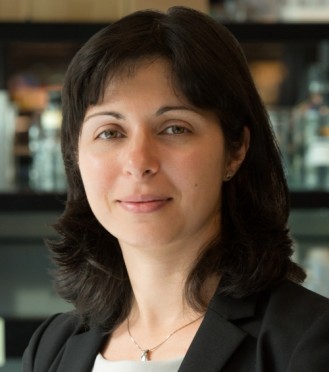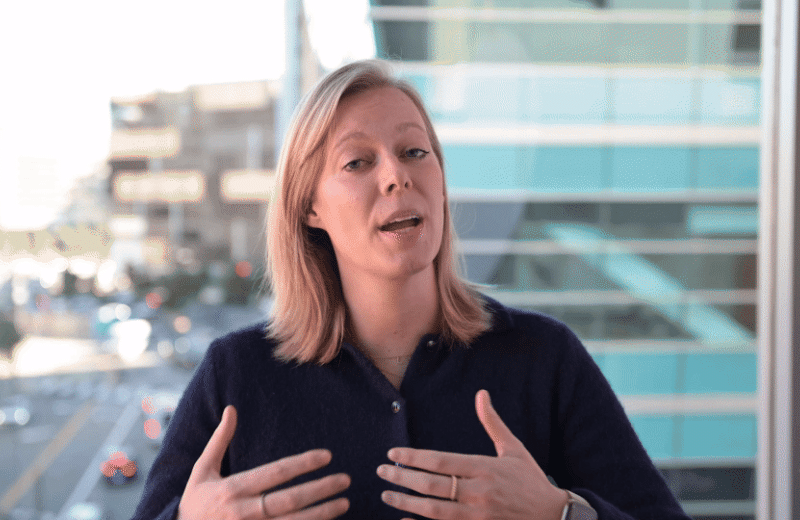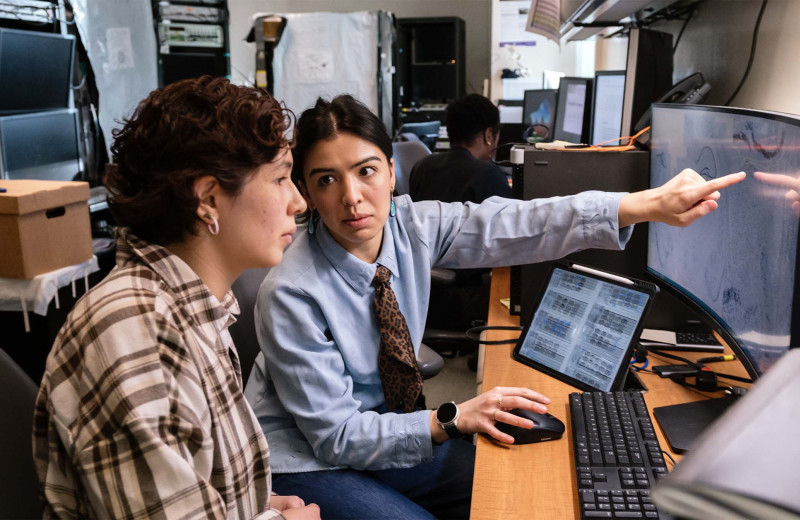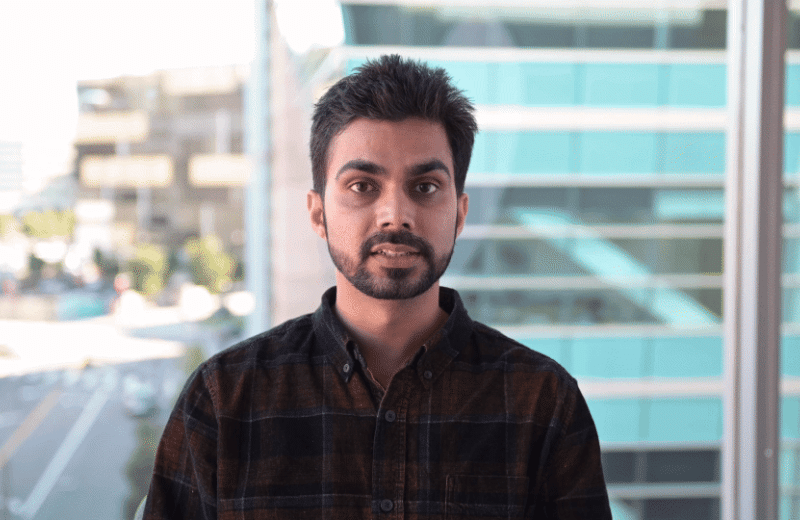Gladstone NOW: The Campaign Join Us on the Journey✕
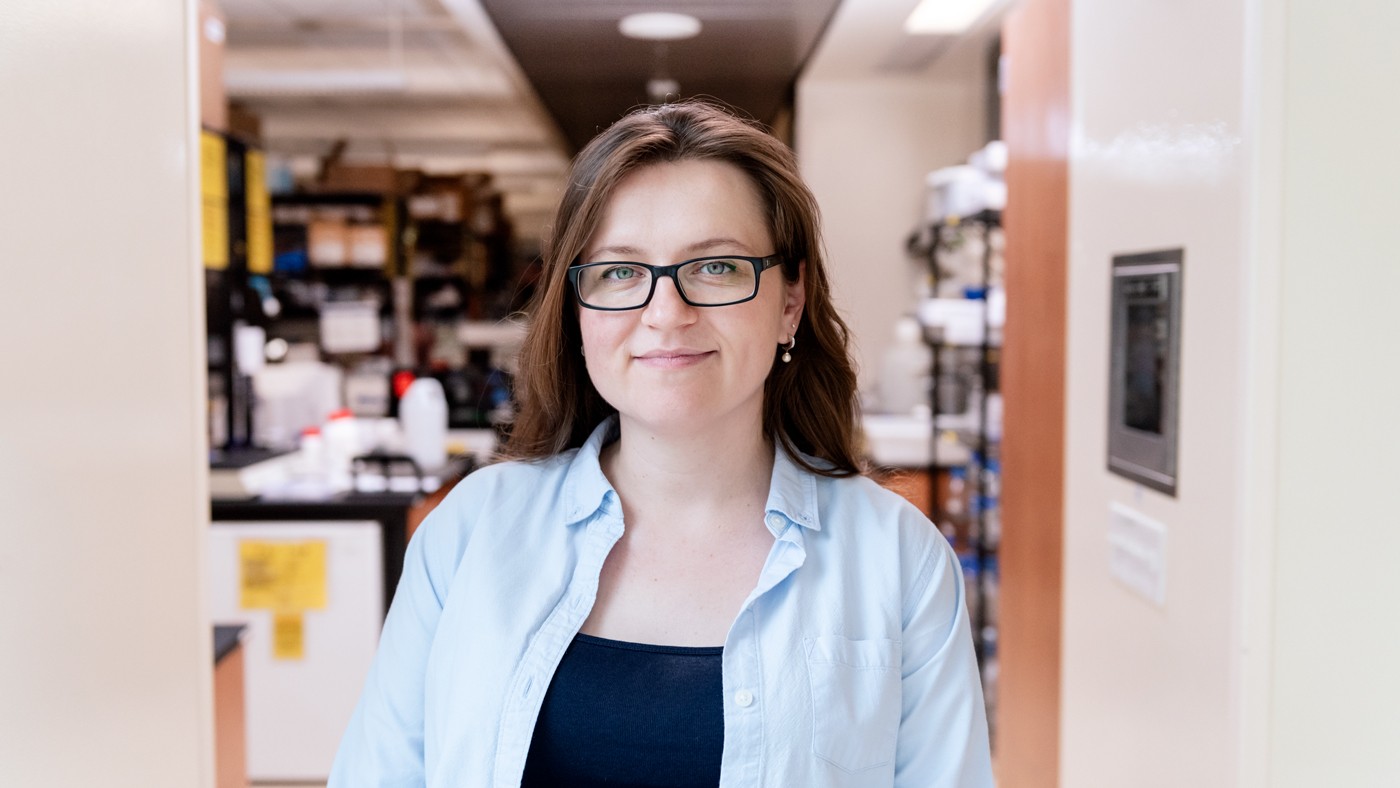
Postdoc Yuliya Voskobiynyk spurs action to support her native country of Ukraine, both at Gladstone and beyond.
Yuliya Voskobiynyk, PhD, starts every morning with a call to her family in Ukraine to make sure they are safe and unharmed.
A postdoctoral scholar at Gladstone Institutes, Voskobiynyk was born and raised in Tlumach, Ivano-Frankivsk, a small town in western Ukraine where her parents and the rest of the family still live. Since Russia invaded Ukraine on February 24, 2022, she has kept tabs daily on her family’s wellbeing.
“It has been extremely scary,” Voskobiynyk says. “While western Ukraine is relatively safer, bombs have fallen just a few kilometers away from my parents’ home. My cousin is a first responder who sees the atrocities up close. And my 4-year-old niece, who had to temporarily relocate to Poland at the beginning of the war but now is back home, did not understand why she had to hide in the cellar.”
“For anyone with loved ones affected, even though you are far away, your heart and your thoughts are with Ukraine all the time.”
The ongoing invasion has killed tens of thousands of Ukrainian people, and millions have been forced to flee their country.
“For anyone with loved ones affected, even though you are far away, your heart and your thoughts are with Ukraine all the time,” Voskobiynyk says. “At a certain point, there is a switch from being in absolute horror and crying to asking, ‘What can I do? How can I help?’”
For Voskobiynyk, the answer is to spur action within her community in the San Francisco Bay Area. In addition to her Gladstone research, Voskobiynyk has long served as a Ukrainian language teacher and translator—in fall of 2021, she was the official translator for Ukrainian first lady Olena Zelenska during President Volodymyr Zelenskyy’s visit to San Francisco.
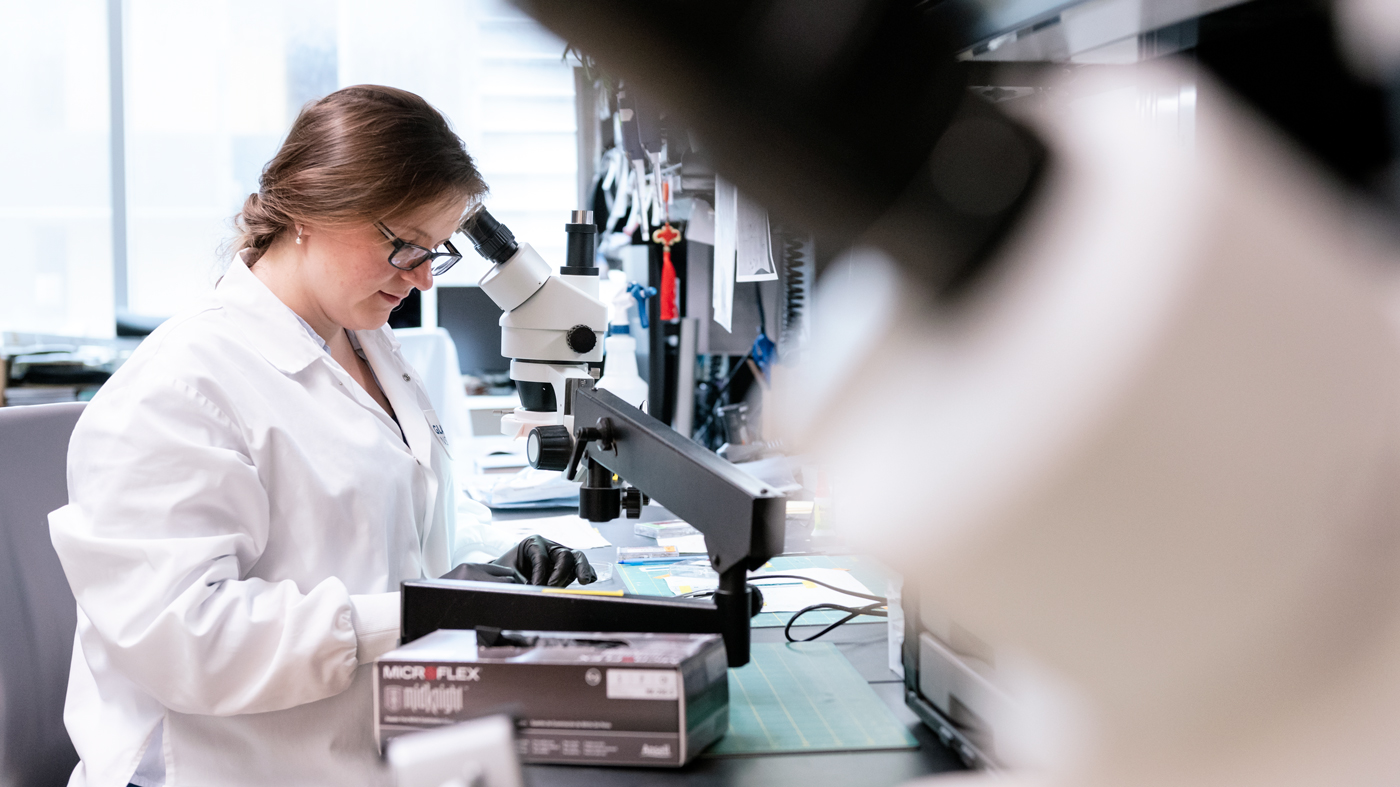
Voskobiynyk is leading fundraising and activism efforts across the San Francisco Bay Area to support victims of war in Ukraine.
Now, Voskobiynyk has taken on a leading role in organizing rallies near San Francisco City Hall to highlight specific demands for U.S. support of Ukraine. She has also ramped up her translation work with the Ukrainian consulate in San Francisco, urging local organizations to support Ukraine and translating official letters to aid this effort.
“We have seen a phenomenal response from Silicon Valley organizations in terms of closing their Russian offices and cutting business ties with Russia completely,” Voskobiynyk says.
A Courageous Vision, Inside and Outside the Lab
Voskobiynyk has also sparked action at Gladstone. In March, she and her colleagues in the lab of associate investigator Jeanne Paz, PhD, organized a sale of baked goods and small plants to raise funds for Nova Ukraine, a local nonprofit that provides emergency relief to people suffering and fighting in the war.
“Our goal was to raise one or two thousand dollars, but thanks to the tremendous generosity of the Gladstone community, we ended up raising over $10,000,” Voskobiynyk says. “I am just beyond grateful for all the support shown by my colleagues and by the leadership here at Gladstone.”
Voskobiynyk created a still-active GoFundMe campaign to collect the proceeds from the bake sale for Nova Ukraine.
“It is amazing to see Gladstone contributing over $10,400 to our charity,” said Nick Bilogorskiy, co-chairman of Nova Ukraine, in an email. “We are very grateful for your support and plan to use the money to purchase and ship food and medical supplies to families in Ukrainian cities of Kyiv, Kharkiv, Chernihiv, Odesa, and Mykolaiv. Together, we can provide some relief to families and victims of war in Ukraine and save more lives.”
As Voskobiynyk’s mentor, Paz says she feels a keen sense of pride for the postdoc’s activism. She also feels deep empathy; in 2008, when Paz was a postdoctoral researcher at Stanford University, her own home country of Georgia was invaded by Russia.
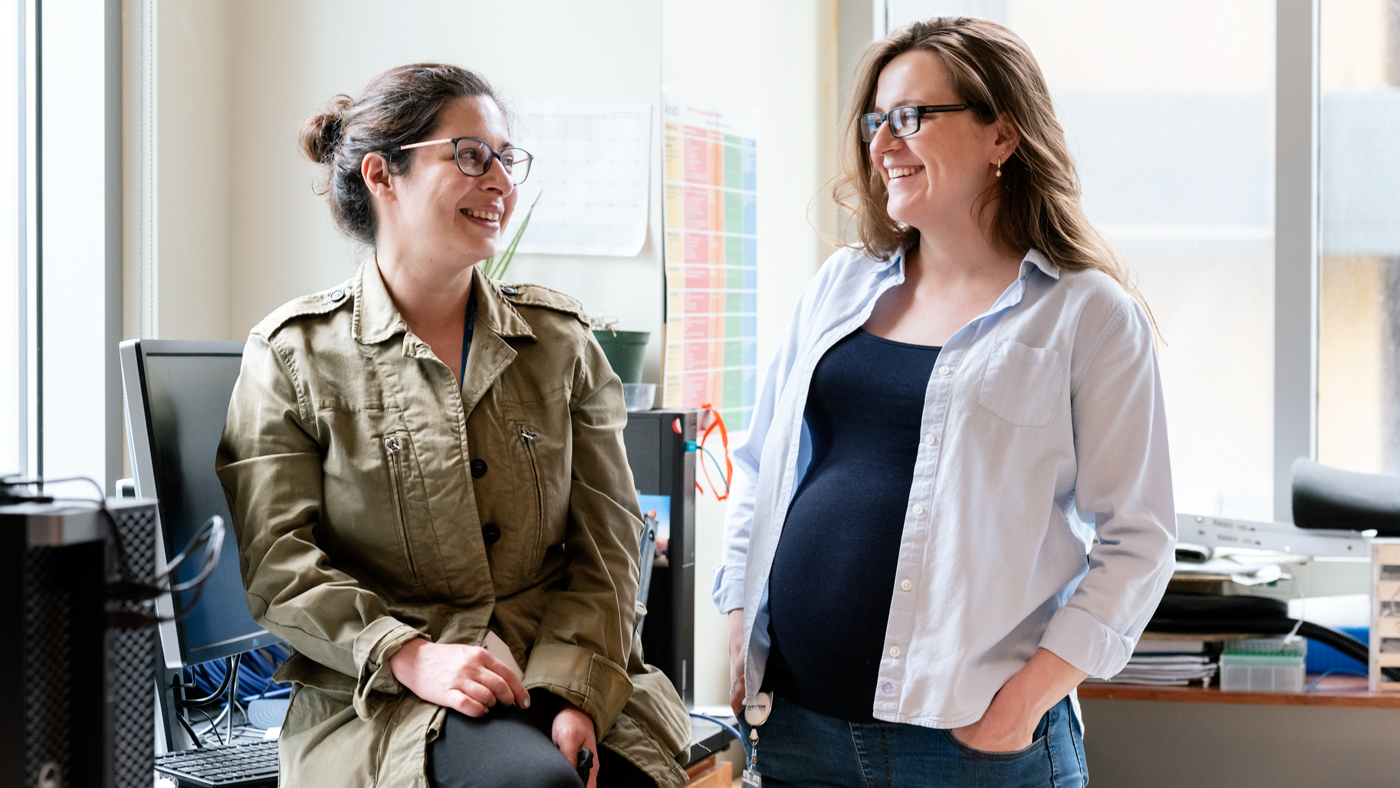
Paz (left) and Voskobiynyk (right) have both experienced living abroad while their home country was invaded by Russia.
“I know the pain and powerlessness that Yuliya is feeling,” Paz says. “But both inside and outside of the lab, she has this courageousness and passion to pursue a big vision for the future—I believe that is the signature of an amazing scientist, and it also reflects the courage we see from the entire Ukrainian community at this time.”
In addition to supporting Voskobiynyk’s activism, Paz has organized efforts to address a shortage in Ukraine of life-saving anti-seizure medications for children with epilepsy. She is also involved in efforts among U.S. research organizations to hire Ukrainian scientists who have been displaced and whose research has been disrupted.
“From the very beginning, Jeanne has been an absolute supporter of my research and activism, while also being at the forefront of Ukrainian support herself,” Voskobiynyk says. “I am absolutely amazed and thankful.”
From Adversity to Action
Outside of Gladstone, Voskobiynyk is now working with her students at the Ukrainian School of San Francisco to fundraise for Ukraine.
Voskobiynyk urges readers to donate to humanitarian organizations like Nova Ukraine or to donate directly to the Armed Forces of Ukraine. She also emphasizes the importance of calling and writing letters to local representatives and senators to encourage them to help support and arm Ukraine.
Meanwhile, in Paz’s neuroscience lab, Voskobiynyk continues to investigate potential new treatments for epilepsy. Perhaps not surprisingly, her long-time dedication to epilepsy research was also directly inspired by personal experience: Voskobiynyk’s grandmother, now bedridden in Ukraine, suffers from post-stroke epilepsy.
“This kind of condition is terrible not only for a patient but for the whole family of caretakers, and we still do not have effective treatments,” Voskobiynyk says. “I know many of us at Gladstone have similar personal reasons for studying disease, and I’m grateful to be part of a community that is dedicated to taking action.”
“What Yuliya has experienced with her family’s health and now their safety is something that never leaves you,” Paz says. “I deeply admire her dedication to her research and to the Ukrainian community.”
Featured Experts
Meet Gladstone: Alisa Dietl
Meet Gladstone: Alisa Dietl
Alisa Dietl brings her international training and clinical perspective to Gladstone, where she works to engineer more effective cancer immunotherapies for solid tumors.
Graduate Students and Postdocs Profile Cancer Pelka LabVoices of Outstanding Mentorship
Voices of Outstanding Mentorship
Three recipients of Gladstone’s Outstanding Mentoring Award share their personal approaches to mentorship and reflect how this passion has shaped their own growth as leaders.
Profile Roan Lab Graduate Students and PostdocsMeet Gladstone: Shyam Jinagal
Meet Gladstone: Shyam Jinagal
Shyam Jinagal explores how genetics, aging, and regeneration shape the heart—and how those insights could one day restore heart function after injury.
Graduate Students and Postdocs Profile Cardiovascular Disease Srivastava Lab

